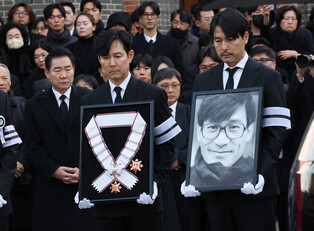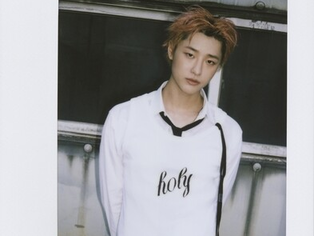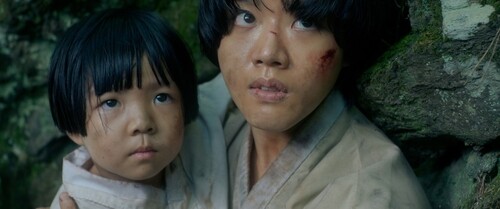 |
| ▲ This photo provided by Triple Pictures is a scene from "Hallan" (PHOTO NOT FOR SALE) (Yonhap) |
By Shim Sun-ah
SEOUL, Nov. 18 (Yonhap) -- The Korean film "Hallan" is not an easy watch, but it is an essential one. This searing historical drama distills the vast tragedy of the Jeju April 3 uprising into the intimate, desperate journey of a mother and her young daughter to survive relentless pursuit by state forces.
The Jeju April 3 uprising, which began on April 3, 1948, and continued into the early 1950s, started as a protest against the U.S. military-led administration following Korea's liberation from Japan's 1910–1945 colonial rule.
The then government portrayed the uprising as a communist revolt and carried out brutal crackdowns, killing an estimated 25,000 to 30,000 civilians -- many of whom had no connection to armed groups. The tragedy remains one of the darkest and least openly discussed chapters of modern Korean history.
Set against the stunning yet unforgiving backdrop of Jeju Island in 1948, the film follows Ajin (Kim Hyang-gi), a 26-year-old haenyeo, or traditional female diver. As the violence of the anti-communist purge intensifies, Ajin leaves her young daughter, Haesaeng (Kim Min-chae), with her mother-in-law and climbs Mount Halla to find her husband, who is hiding from the punitive forces.
The separation is agonizing, and worse soon follows: word that her village has been attacked. Ajin rushes back down the mountain in a desperate attempt to reach her daughter, fully aware she may not survive the journey. Meanwhile, 6-year-old Haesaeng, orphaned after her grandmother is killed in an indiscriminate raid, sets out alone toward the mountain to find her mother after soldiers burn the town. Their reunion becomes the start of an even more harrowing journey, hunted by the very forces meant to protect them.
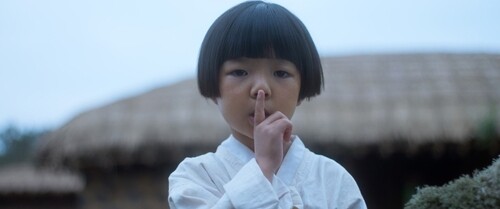 |
| ▲ This photo provided by Triple Pictures is a scene from "Hallan" (PHOTO NOT FOR SALE) (Yonhap) |
The movie's title, "Hallan," refers to a rare orchid native to Mount Halla -- a symbol of Ajin's resilience as she struggles to endure in the island's wind-swept landscape.
Director Ha Myung-mi approaches the conflict with extraordinary restraint and humanism, refusing to simplify the Jeju uprising into a battle of political factions.
The film's recurring message, voiced through Ajin and her husband, is clear: "Even if a good world comes, but my family is all dead, what kind of good world is that?"
"Hallan" acknowledges the brutality of the punitive forces' massacres while also depicting the violence inflicted by armed rebels on their fellow islanders. Ideology, the film suggests, meant little to those trapped in between and only survival matters.
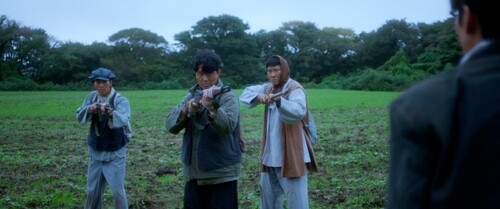 |
| ▲ This photo provided by Triple Pictures is a scene from "Hallan" (PHOTO NOT FOR SALE) (Yonhap) |
The authenticity is heightened by the cast's complete commitment to the Jeju dialect, a choice so thorough that non-Jeju Korean speakers may find themselves relying on Korean subtitles -- an unusual experience for a domestic film.
Kim Hyang-gi delivers a career-best performance as Ajin, embodying a mother whose deep, tearful love for her child fuels an unyielding strength. Child actress Kim Min-chae charms as Haesaeng, her innocent face a heartbreaking contrast to the terror she endures. Paradoxically, the island's vast natural beauty with its endless mountains and open seas only makes the pair's flight feel more claustrophobic and hopeless.
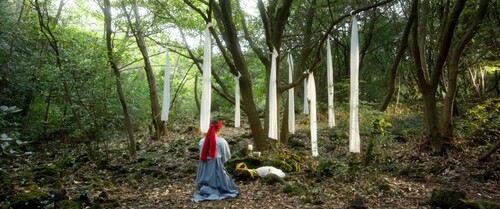 |
| ▲ This photo provided by Triple Pictures is a scene from "Hallan" (PHOTO NOT FOR SALE) (Yonhap) |
The film concludes with a powerful visual statement at the Jeju 4.3 Peace Park. The camera focuses on individual black gravestones before rising high above, revealing thousands of monuments aligned in somber rows. The effect is overwhelming, leaving viewers with a heavy, lingering ache. For many, it reframes Jeju not as a postcard-perfect escape but as a landscape still shadowed by unspoken grief.
The movie is set for release at local theaters on Nov. 26.
(C) Yonhap News Agency. All Rights Reserved




















